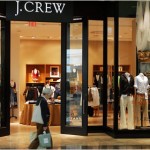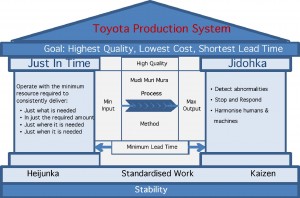Recently I watched a special on CNBC, called “J.Crew and the Man Who Dressed America.” The special highlights the CEO, Mickey Drexler, and demonstrates how he transformed the company from a state of free-fall to a booming power-player. In all honesty, fashion doesn’t really catch my eye, but the business of fashion, illustrated through Drexler’s performance, demanded my attention. Drexler took over this company and immediately made quality, supply chain management, and global sourcing critical priorities.
He started diving head first into all of the fine details, even customer complaints, which he sometimes personally takes care of. He takes the mistakes about clothes relayed by the unhappy customers-t-shirts getting holey, sweaters pilling, and actually targets those mistakes and directs his employees to improve upon them. The quality is hand inspected by him, the CEO. He does not just sit in the office somewhere and make decisions about products that he has very little contact with. On the contrary, he is in the store inspecting the product (the merchandise and the store itself) and he knows every single piece of product in each store. He even spends time analyzing with his team on whether to have push or pull doors at the front of the store, before finally settling on the push. Drexler says that 90% of studies show that people prefer a push door to a pull.
Drexler not only works with his suppliers but meets with them in person and inspects their product. He controls the supply chain very tightly and prefers to have the utmost control of both the production and the delivery of the product. J.Crew is a stand alone company that is not sold at department stores, uncommonly at malls and is not conglomerated with other clothes brands, except for its own offshoots. Drexler hand picks the finest fabric from family owned businesses in Italy and then has the fabric shipped to China, where nearly all of the products are assembled before being shipped to the U.S. and Canada. All of the actual design however, is all completely done at J. Crew’s headquarters in Manhattan.
Forever present in all the dimensions of the brand is an attention to detail so strong that it’s difficult not to notice. Not a piece of the company hasn’t been analyzed and rethought and it clearly shows. It’s no surprise that the message that J. Crew sends does cross industries and it proves that a company must be completely synced with its product, no matter what it is. As Mickey Drexler says, “Just have huge conviction about what you do…and don’t be afraid.”








